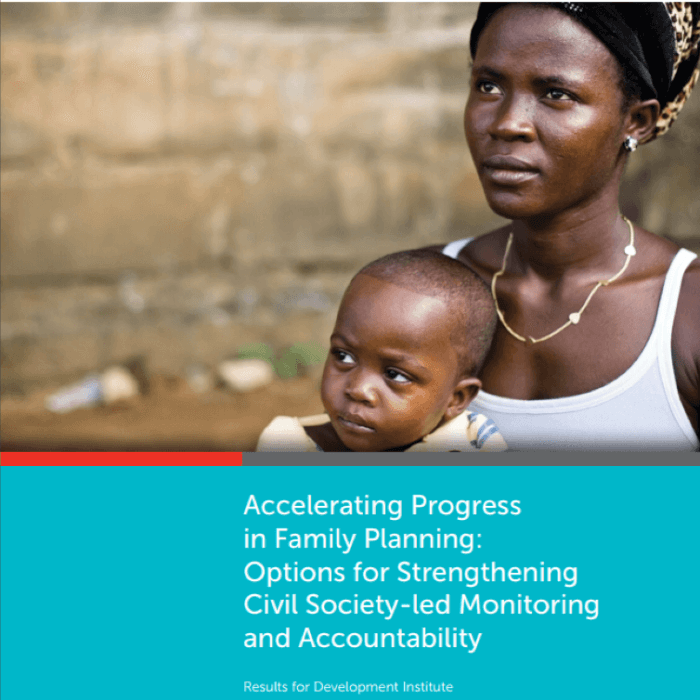The Challenge
The London Family Planning Summit of 2012 marked a historic turning point for family planning. At the Summit, governments, bilateral and multilateral donors, service providers, private sector companies and non-governmental organizations launched the Family Planning 2020 initiative (FP2020), committing US$ 4.6 billion to provide 120 million women with family planning information, services and supplies, without coercion or discrimination, by 2020. For these commitments to be realized, however, it will be crucial that all parties are held accountable to ensure that the political, financial, programmatic, and advocacy resources are used efficiently, effectively, and in an equitable manner.
The Opportunity
Based on its experience in transparency and accountability and health financing, R4D is designing options to strengthen monitoring and accountability (M&A) for the commitments made under FP2020. The ultimate objective is to secure support for effective M&A for family planning services to ensure better quality of family planning resources in high-burden countries.
Our Work
As part of this project, R4D is leading a review of existing monitoring and accountability efforts and identifying lessons learned and best practices that should be incorporated into the FP2020 M&A mechanism. In conjunction with this benchmarking, R4D is conducting extensive consultations in four FP2020 countries (India, Indonesia, Senegal and Uganda) to assess challenges and opportunities in M&A for family planning, as well as to draw out lessons that could be applied to a wider range of FP2020 countries.
Based on the review of M&A mechanisms and the country consultations, R4D is developing options for improved M&A that will complement other FP2020 M&A efforts and assist policy makers, donors, and non-governmental organizations in their efforts to fulfill their commitments and reach their goals. These options will focus on enhancing civil society organizations’ M&A role, strengthening partnerships with government champions, and supporting sub-national and facility-level data collection.
This project is being undertaken with the generous support of the William and Flora Hewlett Foundation.















